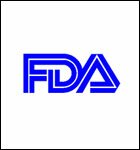FDA Cracking Down On Conflicts Of Interest
Published by Staff March 24th, 2007 in Health, World. The U.S. Food and Drug Administration (FDA) today announced new draft guidance that would implement a more stringent approach for considering potential conflicts of interest for its advisory committee members and for recommending eligibility for meeting participation. FDA is accepting public comments on the proposal for the next 60 days.
The U.S. Food and Drug Administration (FDA) today announced new draft guidance that would implement a more stringent approach for considering potential conflicts of interest for its advisory committee members and for recommending eligibility for meeting participation. FDA is accepting public comments on the proposal for the next 60 days.
“FDA is committed to making the advisory committee process more rigorous and transparent so that the public has confidence in the integrity of the recommendations made by its advisory committees,” said Randall Lutter, Ph.D., FDA’s acting deputy commissioner for policy. “Today’s draft guidance document should provide more consistency in the consideration of who is eligible to participate in advisory committee meetings and would simplify the process.”
FDA currently screens all prospective advisory committee participants before each meeting to determine whether the potential for a financial conflict of interest exists. Under law, FDA may grant a waiver when certain criteria are met, such as when the need for an individual’s expertise outweighs the potential for a conflict of interest.
The draft guidance document would replace guidance issued in 2000 on FDA Waiver Criteria (www.fda.gov/oc/advisory/conflictofinterest/intro.html). The 2000 guidance attempted to address the complex set of variables that can be applied in reaching a decision about an individual advisory committee participant. However, because of its complexity, FDA officials found it difficult to achieve consistent results that the public could readily understand.
This new guidance (www.fda.gov/oc/advisory/waiver/coiguidedft.html) would reduce the likelihood that the process for recommending waivers would vary from meeting to meeting. In addition to a more streamlined approach for considering who may participate in meetings, FDA would tighten its policy for considering eligibility for participation. If an individual has disqualifying financial interests whose combined value exceeds $50,000, after applying certain exemptions, the person would generally not be considered for participation in the meeting, regardless of the need for his or her expertise. If the financial interests are $50,000 or less, after applying certain exemptions, the individual might be recommended to participate as a non-voting member. Only individuals with no potential conflicts would be eligible to fully participate in meetings as voting members.
Financial interest means the potential for gain or loss to a person (or their family and outside affiliations) as a result of the government’s action on a particular topic. Financial interests screened include, but are not limited to, stock ownership, related research and consulting arrangements.
A notice will appear in the Federal Register soon. To submit electronic comments on the draft guidance, visit http://www.regulations.gov/ or www.fda.gov/dockets/ecomments. Written comments may be sent to: Division of Dockets Management (HFA-305), U.S. Food and Drug Administration, 5630 Fishers Lane, Rm. 1061, Rockville, MD, 20852. Comments must include the docket number 2007D-0101.
Today’s announcement is part of the agency’s overall effort to improve its advisory committee process. As announced in January, FDA will be establishing a new advisory committee on how to improve FDA’s communication policies and practices consistent with the best available and evolving evidence. In addition, the agency launched a Web page dedicated to improving recruitment of advisory committee members and enhancing public participation in the process. For more information, go to: www.fda.gov/oc/advisory/.
Advisory committees provide FDA with independent advice from outside experts on issues related to human and veterinary drugs, biological products, medical devices, and food. In general, advisory committees include a chair, several members, plus a consumer, industry, and sometimes a patient representative. Additional experts with special knowledge may be consulted as needed. Although the committees provide advice to the agency, their recommendations are not binding and FDA makes final decisions.
Source: FDA
0 Responses to “FDA Cracking Down On Conflicts Of Interest”
Please Wait
Leave a Reply